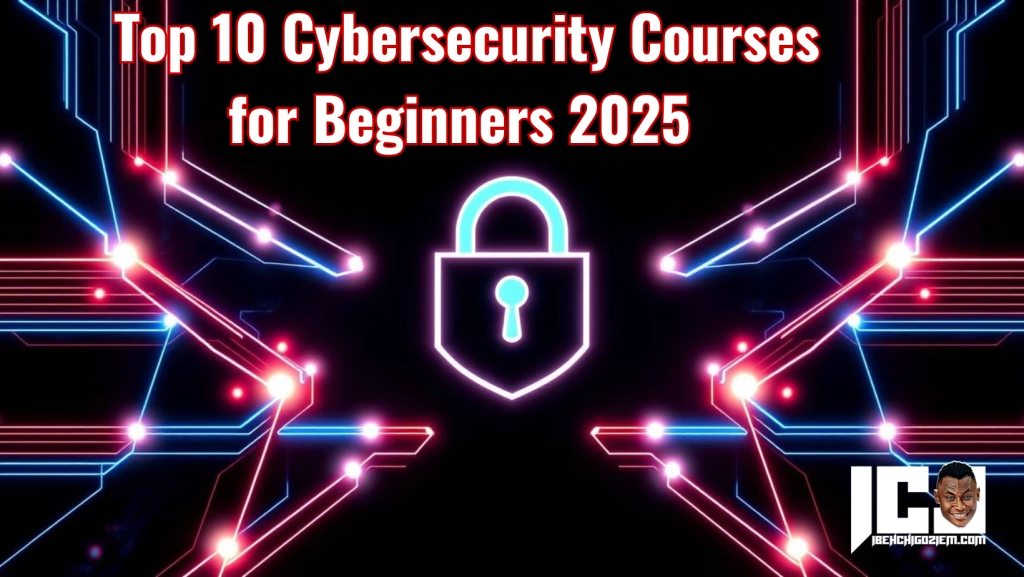Top 10 Cybersecurity Courses for Beginners 2025 With Budget & Fees
In 2025, cybercrime is projected to cost the global economy over $10.5 trillion annually, with ransomware attacks increasing by 150% year-over-year. As organizations scramble to defend their digital assets, the demand for skilled cybersecurity professionals has never been higher. Whether you’re a beginner seeking to break into the field or a seasoned expert aiming to upskill, this guide to the Top 10 Cybersecurity Courses for 2025 will equip you with the knowledge, certifications, and hands-on experience needed to thrive.
1. Google Cybersecurity Professional Certificate

Forget generic “intro to security” courses—Google’s program is a career-launching missile. Designed for absolute beginners, it transforms novices into job-ready analysts in six months, blending Python scripting, SIEM tools like Chronicle, and AI-driven threat hunting into bite-sized modules. Unlike theoretical competitors, its labs simulate breaches in real corporate networks, while its alignment with CompTIA Security+ ensures employers take notice. With 40% of graduates landing roles within 90 days, this is your ticket to bypass help desk limbo and dive straight into $70K+ cybersecurity analyst positions.
ALSO, READ Best In-Demand Digital Skills To Learn For 2025 (Estimated Salary)
Provider: Google via Coursera
Duration: 6 months (7 hours/week)
Cost: $49/month
Certification: Professional Certificate
Best For: Beginners, career switchers
Overview:
Developed by Google, this entry-level program demystifies cybersecurity fundamentals, covering threat detection, network security, and incident response. Through interactive labs, you’ll gain hands-on experience with SIEM tools, Python for automation, and AI-driven security strategies.
Key Skills:
- Threat analysis and risk management
- Security information and event management (SIEM)
- Linux and SQL for cybersecurity
- AI integration in threat detection
Why It Stands Out:
With a 4.8-star rating and alignment with CompTIA Security+ objectives, this course bridges the gap between theory and practice. Graduates report landing roles as cybersecurity analysts and IT specialists within months of completion1912.
2. CompTIA Security+
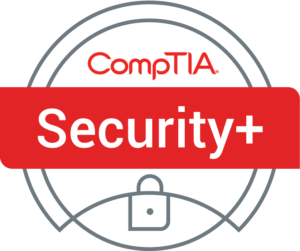
The cybersecurity world’s universal passport, Security+ isn’t just a certification—it’s a non-negotiable baseline. Covering everything from zero-trust frameworks to IoT vulnerabilities, its 2025 refresh mirrors the U.S. Department of Defense’s hiring standards, making it a golden ticket for government contractors and private-sector roles alike. With no prerequisites beyond basic IT knowledge, it’s the fastest way to validate your skills in hybrid cloud security and ransomware mitigation. Over 90% of Fortune 500 companies require this cert for entry-level roles, and its $392 exam fee pays for itself with salary bumps averaging 27%.
ALSO, READ 10 Best Free Cyber Security Online Courses For 2024
Provider: CompTIA
Duration: 3–6 months
Cost: $392 (exam fee)
Certification: Globally recognized vendor-neutral credential
Best For: Entry-level professionals
Overview:
The gold standard for foundational cybersecurity knowledge, Security+ validates skills in network security, cryptography, and risk mitigation. The 2025 update emphasizes zero-trust architecture and IoT security.
Key Skills:
- Securing hybrid environments (cloud/on-premises)
- Endpoint detection and response (EDR)
- Compliance with NIST and ISO frameworks
Career Impact:
Over 700,000 professionals hold this certification, which is mandatory for U.S. Department of Defense roles. Entry-level salaries average $99,446.
3. Certified Information Systems Security Professional (CISSP)

When you’re ready to shift from fixing firewalls to leading boardroom strategy, CISSP is the CEO of cybersecurity certs. Tailored for pros with 5+ years of experience, its 2025 curriculum tackles AI-powered APTs (Advanced Persistent Threats) and post-quantum cryptography, arming you to architect billion-dollar defence systems. Unlike technical certs, CISSP teaches you to speak CFO—mastering risk ROI, compliance audits, and cyber insurance negotiations. With a 93% pass-rate premium for boot camp grads and a direct pipeline to CISO roles, this is how you turn tactical skills into seven-figure leadership opportunities.
Provider: (ISC)²
Duration: Self-paced (recommended 100+ study hours)
Cost: $749 (exam fee)
Certification: Advanced credential for security leaders
Best For: Experienced professionals targeting managerial roles
Overview:
CISSP remains the most sought-after certification for cybersecurity leaders. The 2025 curriculum integrates AI-driven threat intelligence and DevSecOps practices, preparing candidates to design and manage enterprise-wide security programs.
Key Skills:
- Security architecture and engineering
- Identity and access management (IAM)
- Cloud security strategy (AWS, Azure)
Why It’s Essential:
CISSP holders earn an average of $151,860 annually and qualify for roles like Chief Information Security Officer (CISO). The certification meets DoD 8140 requirements.
4. IBM Cybersecurity Analyst Professional Certificate
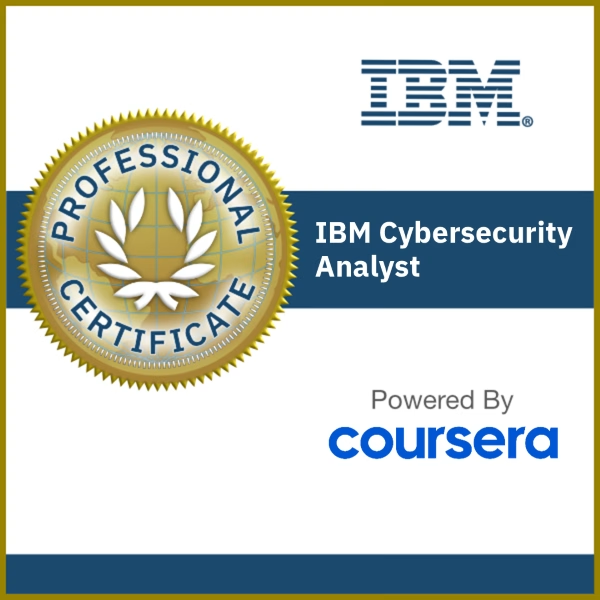
SOC teams aren’t hiring theorists—they need analysts who’ve dissected live ransomware and traced nation-state hackers. IBM’s course drops you into their Security Operations Center, using real breach data from Fortune 100 clients. You’ll crack open malware with Ghidra, profile attackers via MITRE ATT&CK, and automate responses with IBM QRadar—all while mastering GDPR and HIPAA compliance. The kicker? IBM prioritizes graduates for its cybersecurity apprenticeships, with 65% converting to full-time roles at $85K+.
Provider: IBM via Coursera
Duration: 4 months (10 hours/week)
Cost: $49/month
Certification: Professional Certificate
Best For: Aspiring analysts and SOC teams
Overview:
IBM’s program focuses on real-world incident response, penetration testing, and forensic analysis. Modules include threat intelligence, compliance frameworks (GDPR, HIPAA), and hands-on labs with IBM QRadar.
Key Skills:
- Malware analysis and reverse engineering
- Network vulnerability assessment
- Threat hunting with MITRE ATT&CK
Career Boost:
Graduates are prepared for roles like Cybersecurity Analyst (average salary: $124,740) and receive an IBM Digital Badge for LinkedIn.
5. Certified Ethical Hacker (CEH)
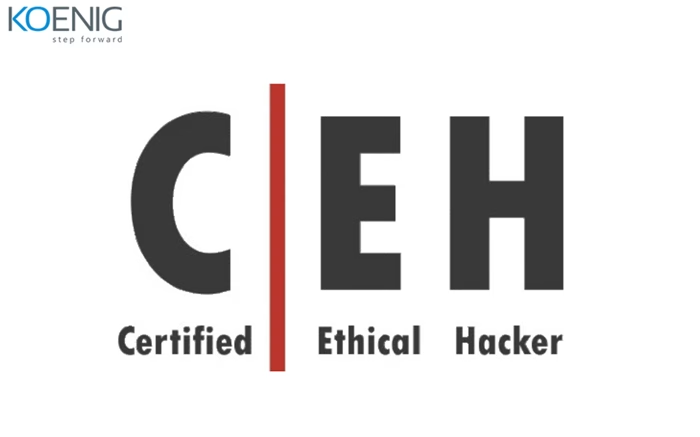
The offence is the best defence—and CEH v12 is the ultimate hacker’s playground. Forget script-kiddie tutorials; here, you’ll weaponize Python to exploit AWS misconfigurations, hijack IoT devices, and bypass AI-powered WAFs. The 2025 labs simulate ransomware-as-a-service campaigns, complete with dark web negotiation simulations. While critics call it pricey, its DoD approval and 89% exam pass rate for self-study students make it the red team certification that HR filters can’t ignore.
Provider: EC-Council
Duration: 3–6 months
Cost: 950–950–1,199
Certification: Ethical Hacking credential
Best For: Penetration testers and red team specialists
Overview:
CEH v12 teaches offensive security tactics, including social engineering, IoT hacking, and cloud exploitation. The 2025 update includes AI-powered penetration testing tools and ransomware defence strategies.
Key Skills:
- Exploiting Wi-Fi and mobile vulnerabilities
- Cryptography and steganography
- Writing custom exploits in Python
Why Hackers Love It:
CEH is DoD-approved and opens doors to roles like Penetration Tester (average salary: $134,217). Labs simulate real-world scenarios like breaching AWS S3 buckets.
6. SANS SEC275: Foundations + GFACT Certification
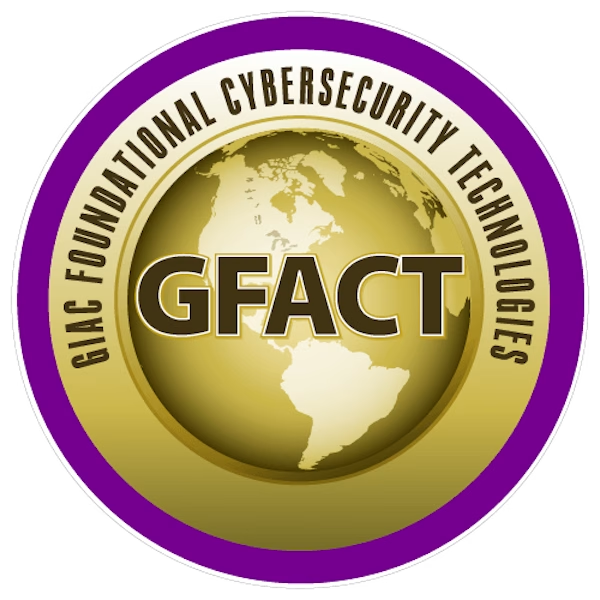
SANS doesn’t do “beginner friendly”—it does “baptism by fire.” SEC275’s 50-hour lab grind teaches you to harden Linux kernels, dissect memory dumps with Volatility, and neutralize APTs lurking in ICS/SCADA systems. The 2025 update throws quantum-resistant VPNs and Azure AD exploits into the mix, while the GFACT certification signals to employers you’ve survived cybersecurity’s version of Navy SEAL training. Yes, it’s $3,400—but SANS’ job board connects grads to classified government contracts you won’t find on LinkedIn.
Provider: SANS Institute
Duration: 4 months (50–60 hours)
Cost: $3,400
Certification: GIAC Foundational Cybersecurity Technologies (GFACT)
Best For: Technical beginners needing a rigorous foundation
Overview:
SANS’ flagship course combines video lectures, live labs, and CTF challenges to teach OS hardening, network protocols, and digital forensics. The 2025 edition adds modules on quantum cryptography and OT security.
Key Skills:
- Memory analysis with Volatility
- Active Directory exploitation
- Secure coding practices
Unique Perk:
Graduates receive a free retake and access to SANS’ Cyber Range for live-fire exercises.
7. Microsoft Cybersecurity Architect Expert
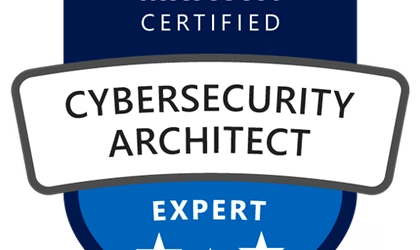
Cloud breaches cost 63% more than on-premises attacks—and Microsoft’s cert turns you into Azure’s ultimate bodyguard. You’ll design zero-trust architectures for hybrid workforces, secure AI models feeding on sensitive data, and automate compliance for FedRAMP and CMMC. The capstone? A hands-on project defending a mock Fortune 500 company from a SolarWinds-style supply chain attack. With Microsoft partners scrambling for certified architects, this course’s ROI is clearer than a Defender for Endpoint dashboard.
Provider: Microsoft via Coursera
Duration: 6 months (10 hours/week)
Cost: $49/month
Certification: Microsoft Certified Expert
Best For: Cloud security architects
Overview:
This course trains professionals to design zero-trust architectures for Azure and hybrid environments. Topics include securing AI/ML models, IoT edge devices, and compliance with FedRAMP.
Key Skills:
- Implementing Azure Sentinel and Defender
- Securing DevOps pipelines
- Governance, Risk, and Compliance (GRC)
Career Edge:
Microsoft-certified architects earn up to $184,190 annually in cloud-focused roles.
8. ISC2 Certified in Cybersecurity (CC)
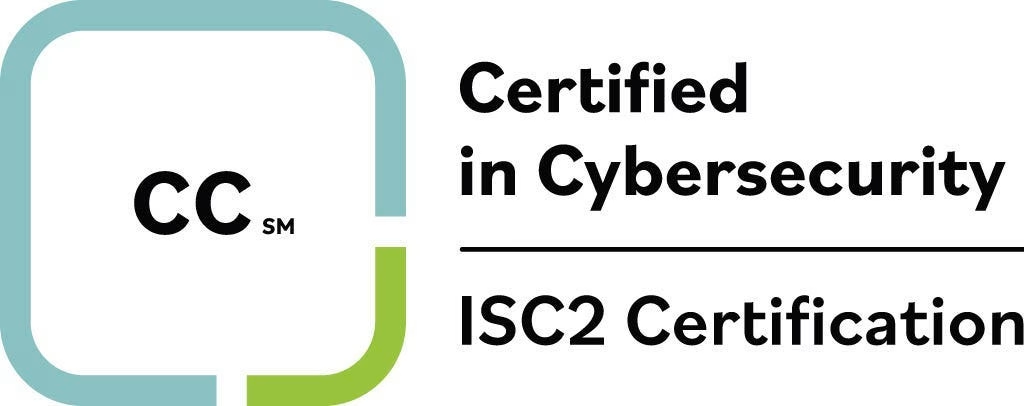
No IT degree? No problem. ISC2’s free CC cert is the equalizer, breaking industry gatekeeping with modules on social engineering defence, basic cryptanalysis, and deepfake detection. Tailored for teachers, nurses, and career changers, it’s the only cert that pairs with free mentorship from (ISC)² veterans. The 2025 edition even includes a virtual escape room where you “save” a hospital from a ransomware siege. While it won’t land you a pentesting gig, it’s the foot-in-the-door for $60K+ compliance or GRC roles—with no debt attached.
Provider: (ISC)²
Duration: 4 weeks (self-paced)
Cost: Free (via One Million Certified Initiative)
Certification: Entry-level credential
Best For: Absolute beginners, career changers
Overview:
ISC2’s free program covers security principles, access controls, and incident response. The 2025 curriculum includes modules on AI ethics and deepfake detection.
Key Skills:
- Security awareness training
- Disaster recovery planning
- Basic network segmentation
Why It’s Unique:
No prior experience is required, making it ideal for non-IT professionals. Completers earn a free exam voucher and ISC2 membership
9. Offensive Security Certified Professional (OSCP)
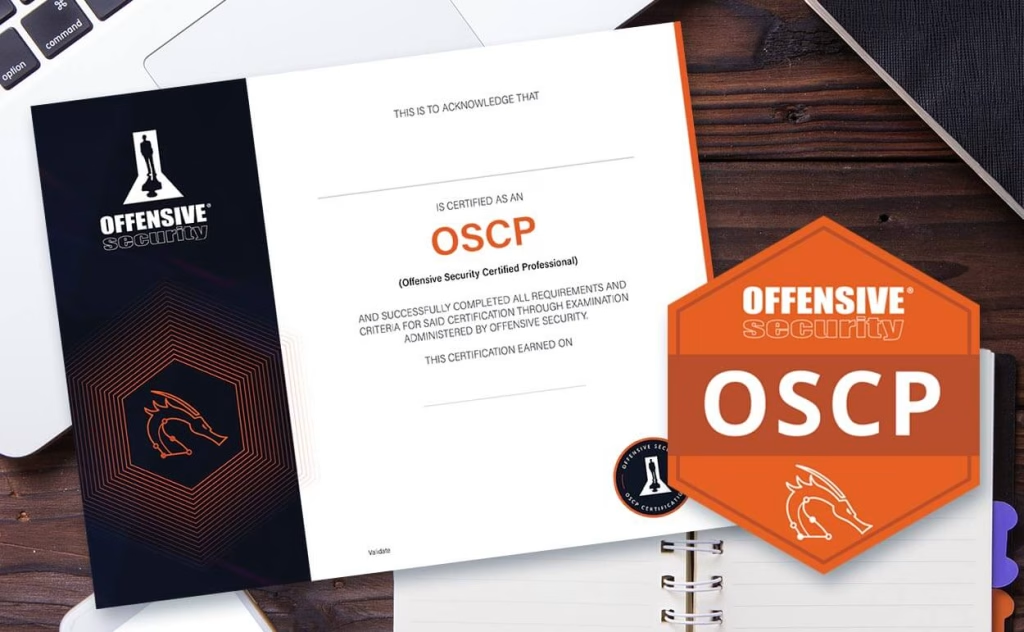
OSCP isn’t a certification—it’s a blood pact. The 24-hour exam pits you against a live network where you’ll exploit buffer overflows, pivot through Active Directory forests, and write custom Python payloads. The 2025 labs now include API gateway exploits and Tesla vehicle hacking scenarios, while the infamous “proctored scream test” (no breaks, no help) weeds out the meek. But for those who survive, OSCP opens doors to boutique pentest firms charging
Provider: Offensive Security
Duration: 3–6 months
Cost: $1,599 (includes lab access)
Certification: Hands-on penetration testing credential
Best For: Advanced red teamers
Overview:
OSCP’s 24-hour exam challenges candidates to hack a live network, write exploit code, and document findings. The 2025 labs include IoT devices and API vulnerabilities.
Key Skills:
- Privilege escalation in Windows/Linux
- Buffer overflow exploitation
- Pivoting through multi-tier networks
Reputation:
Dubbed the “gold standard” for pen-testers, OSCP holders report salary jumps of 40%.
10. MIT xPRO Professional Certificate in Cybersecurity
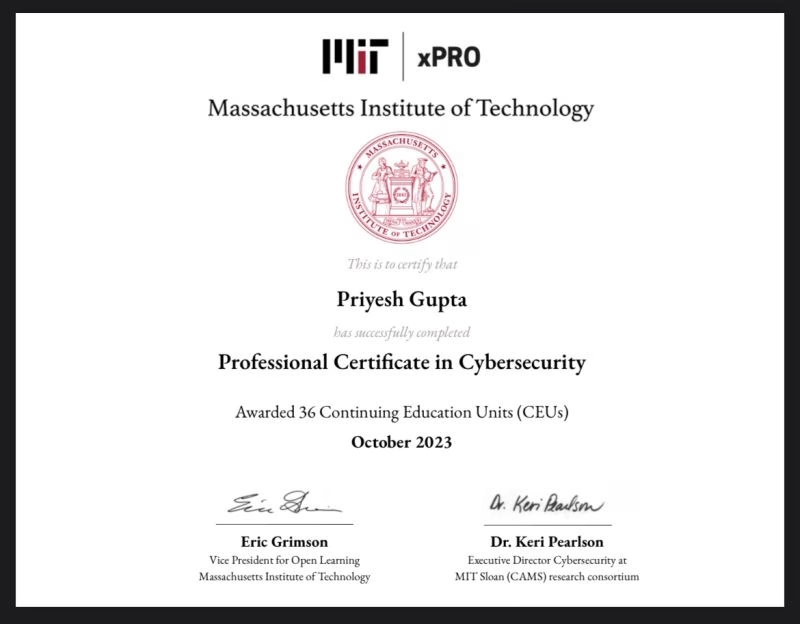
When you’re done with technical certs and ready for the C-suite, MIT xPRO teaches you to quantify cyber risk in boardroom dollars. Through case studies like the Lapsusgang’sOktabreach,you’lllearntobudgetforAIthreatdetection, negotiate cyber insurance premiums and overhaul corporate culture to outsmart phishing. The secret sauce is Access to MIT’s AI simulator, which models board reactions to your breach response plans.
Provider: Massachusetts Institute of Technology
Duration: 24 weeks (15–20 hours/week)
Cost: $6,502
Certification: MIT xPRO Credential
Best For: Executives and technical leaders
Overview:
MIT’s program blends technical training (AI-driven threat modelling) with leadership skills for C-suite roles. Case studies include Colonial Pipeline and SolarWinds breaches.
Key Skills:
- Cybersecurity ROI analysis
- Board-level risk communication
- Building a security-aware culture
Elite Advantage:
Graduates join MIT’s alumni network and earn 36 CEUs. Ideal for CISOs transitioning to CEO roles912.
How to Choose the Right Course
- Career Goals:
- Beginners: Start with Google Cybersecurity or ISC2 CC.
- Technicians: Pursue OSCP or CEH.
- Leaders: Opt for CISSP or MIT xPRO.
- Budget:
- Free: ISC2 CC, CISA Learning.
- Mid-Range: Google/IBM Certificates ($49/month).
- Premium: SANS (3,400),MIT(3,400),MIT(6,502).
- Learning Style:
- Self-paced: Coursera, Cybrary.
- Live Labs: SANS, OSCP.
The Future of Cybersecurity Careers
By 2025, the cybersecurity workforce gap will reach 3.5 million, with high demand for:
- Cloud Security Engineers: $160,000+ (AWS/Azure certs)211.
- AI Security Specialists: Defending generative AI systems9.
- OT/ICS Security Experts: Protecting critical infrastructure.
Conclusion
The cybersecurity landscape in 2025 is both a battlefield and a goldmine. By enrolling in these top-tier courses, you’ll not only future-proof your career but also become a frontline defender against cyber chaos. From free certifications to Ivy League credentials, there’s a path for every ambition—now’s the time to act.
Explore Further:
- CISA Cybersecurity Training
- NSA Centers of Academic Excellence
- Cybrary Insider Pro for team training.
